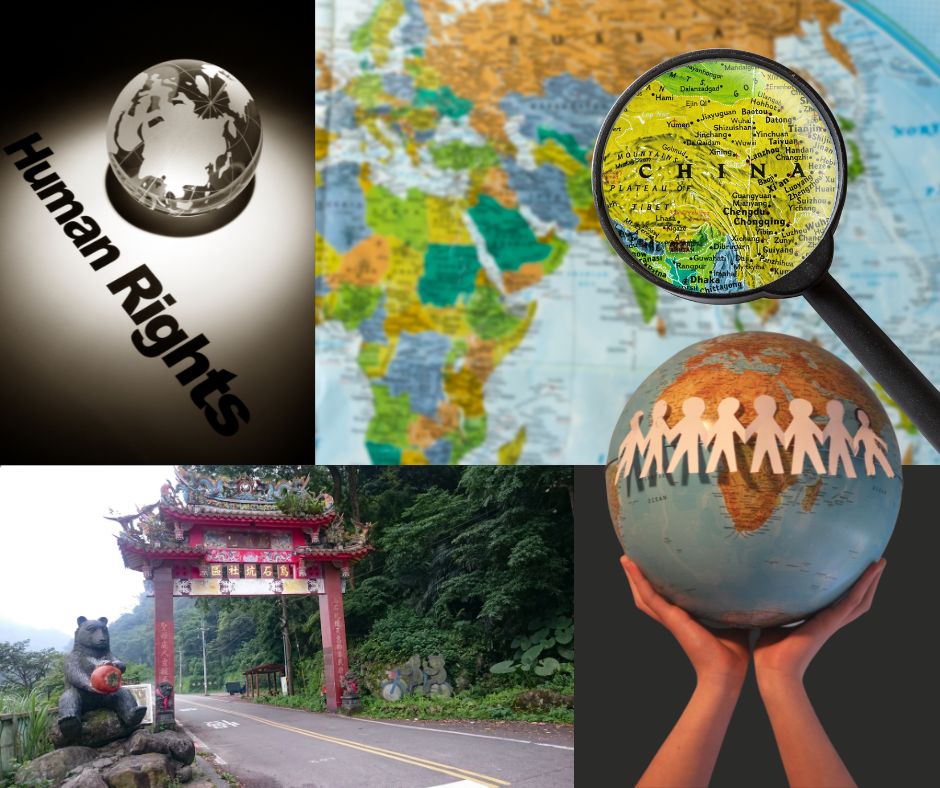
Source: AUN News
The extent of arbitrary detentions against Uyghur and others, in the context of “restrictions and deprivation more generally of fundamental rights, enjoyed individually and collectively, may constitute international crimes, in particular crimes against humanity,” was stated by OHCHR in a strongly worded assessment at the end of the report.
“Quick review”
According to the UN rights agency, the report that was made public on Wednesday was “based on a rigorous review of documentary material currently available to the Agency, with its reliability appraised in conformity with standard human rights methodology.”
The government’s own policies, plans, statistics, and opinions were given particular attention. The Office requested information from China and engaged it in technical and communication exchanges throughout the process.
According to the report, which was made public on the final day of Ms. Bachelet’s four-year term in office, the violations happened as a result of the Chinese government’s assertion that it is using re-education camps, also known as so-called vocational educational and training centres (VETCs), as part of a counter-extremism strategy to target terrorists among the Uyghur minority.
Interlocking patterns
The current Xinjiang strategy of the government “has resulted in interlocking patterns of severe and needless limitations on a wide spectrum of human rights,” according to OHCHR.
VETC system “has been curtailed in scope or wound up,” according to China, but according to OHCHR, “the laws and policies that underpin it remain in effect,” which has led to an increase in the use of imprisonment.
The systems of arbitrary detention and related patterns of abuse, according to OHCHR, “occur against the backdrop of broader discrimination” against Uyghur and other minorities since 2017.
breaches of international law
This has included significant, arbitrary, and discriminatory restrictions on human rights and fundamental freedoms, including limitations on the right to practise one’s religion and the rights to privacy and travel, all in violation of international laws and standards.
The research claims that Chinese policies in the region have “transcended borders,” severing links, severing families, and generating “patterns of intimidation and threats” against the greater Uyghur diaspora who have spoken out about circumstances back home.
According to OHCHR, the Chinese government is “primarily responsible for ensuring that all laws and policies are brought into compliance with international human rights law and to promptly investigate any allegations of human rights violations, to ensure accountability for perpetrators, and to provide redress to victims.”
Report recommendations
The government should take “urgent actions” to release everyone who has been unlawfully detained in XUAR, regardless of whether they are being held in camps or another sort of detention institution, according to one recommendation made in the UN rights office’s report.
The report recommended that China inform families of the whereabouts of any detainees, providing precise locations, as well as aid in establishing “secure channels of communication” to facilitate family reunions.
In order to “ensure their complete compliance with binding international human rights law,” the study urges China to conduct a thorough legal assessment of its national security and counterterrorism policies in XUAR and abolish any legislation that do not adhere to international norms.
A prompt government inquiry of claims of human rights abuses in camps and other detention facilities is also demanded. This includes claims of torture, sexual assault, cruel treatment, indignities, forced medical care, forced labour, and reports of deaths while in prison.
There was no “massive infringement of rights”
China claimed in a statement that there had been no “massive violation of rights” and that “the legitimate rights and interests of employees of all ethnic groups in Xinjiang are respected.”
The statement urges the international community to “look through the inept performances and malevolent objectives of anti-China forces in the US and the West, who want to use Xinjiang to constrain China,” and to be “clear-eyed about the truth” of its counterterrorism campaign in the area.
Instead, it requests that the UN and other international institutions look into “the innumerable crimes perpetrated, and the human rights disasters caused, by the US and certain other Western countries, both at home and abroad.”
Bachelet’s mission in May
The human rights chief visited XUAR in May as part of her trip to assess the situation there at the invitation of the Chinese government.
Ms. Bachelet spoke with a variety of government representatives, many civil society organisations, academics, and community and religious leaders while on her journey. Prior to the tour, she also connected with a number of groups online that focused on the Xinjiang province, Tibet, Hong Kong, and other regions of China.
She expressed worry about issues including Xinjiang, Tibet, Hong Kong, human rights advocates, and labour rights at the conclusion of her visit, but she also lauded China for its “tremendous achievements” in reducing poverty and eliminating extreme poverty 10 years earlier than its target date.
Ms. Bachelet also commended the work being done by NGOs to advance the rights of LGBTI people, persons with disabilities, and the elderly, as well as legislation that strengthens the protection of women’s rights.
The UN rights chief emphasised the significant role that China must play, both regionally and globally, and noted that everyone she met during her visit—including government officials, members of civil society, academics, diplomats, and others—expressed a genuine desire to advance the cause of promoting and defending human rights for all.
Analysis by: Advocacy Unified Network
